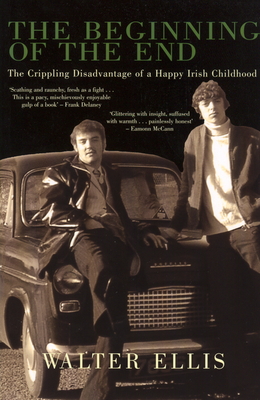The Beginning of the End
Peter Berresford Ellis reviews The Beginning of the End: the crippling disadvantage of a happy Irish childhood by Walter Ellis, Mainstream Publishing, ISBN 1845960564, £9.99 pbk

OF THE many personalities to emerge during the war in the north of Ireland, that of Ronald Bunting stands out as a peculiar icon. The son of Major Ronald Bunting, Ian Paisley's bowler-hatted sidekick during the unionist attempts to destroy the civil rights movement in the 1960s, the architect of the Burntollet ambush, was himself raised as a Protestant in east Belfast.
Ashamed of his father's role, Ronnie was to become a committed socialist, republican, commander in Belfast of the Irish National Liberation Army and mastermind behind the assassination of Airey Neave on the eve of Margaret Thatcher's 1979 victory.
Neave, a war hero to the English and among the first to successfully escape from Colditz PoW camp, was nevertheless a right-winger with extreme views about dealing with Ireland. A close friend of Thatcher, he was about to be appointed Northern Ireland secretary. .
Walter Ellis was Ronnie's cousin, also a Protestant from east Belfast, and this book is mainly about his childhood but, nevertheless, dwells heavily on his cousin's career. They went to school together and on to Queen's University. They became politically left wing, realising the only logical hope for a peaceful, equitable future lay in a re-united Ireland.
However, Walter went into journalism while Ronnie took the path into the armed struggle and subsequent death at the hands of an SAS assassination squad.
Ronnie Bunting was shot dead in front of his wife, Susanne, his children Fiona, aged seven, Deirdre, aged three, and Ronan, only eighteen months, together with another Protestant republican comrade, Noel Lyttle. The SAS team burst into the house in Turf Lodge where the family were in bed at 3.30 a.m. Both Bunting and Lyttle were unarmed at the time.
Major Bunting had, of course, long realised what path his son had taken and had himself withdrawn from his association with Paisley. He even tried to persuade Walter Ellis to shelter him in Brussels after a failed assassination attempt on 5 May 1975, when Ronnie was shot in the neck while driving to Turf Lodge.
The Major refused to allow his son to be buried alongside other INLA volunteers in Milltown and had him buried in a churchyard at Donaghadee. There is an unintentional irony that in the churchyard are the graves of seven Protestant republican United Irishmen who fought in the 1978 uprising, one of whom, William Morrrison, was executed by the English.
Major Bunting died of a heart attack in 1984, never recovering from the loss of his son.
Walter Ellis became a well-known journalist, although this did not stop him being intimidated by the so-called `security forces'. On one occasion, although a bona fide journalist working for the Examiner, Ellis was picked up by Special Branch who could not quite agree their excuse for doing so - either an attempt to assassinate William Whitelaw or attempting to rob a petrol filling station. After interrogation and incarceration for the night he was released.
That is when Ellis made the mistake of telling the Special Branch officer that he would register a formal complaint with the National Union of Journalists and write about the incident. He was then asked him to blow into a breathalyser and when he pointed out that he had been incarcerated in the cells and could not have been drinking he was forced to do so before being charged with driving while drunk.
His solicitor advised him to plead guilty in case the Special Branch trumped up other charges. He was fined £500, plus costs and banned from driving for a year.
This is an essential book that tells the realities of the time in a way that leaves a deep and lasting impression.
Connolly Association, c/o RMT, Unity House, 39 Chalton Street, London, NW1 1JD
Copyright © 2006 Peter Berresford Ellis

